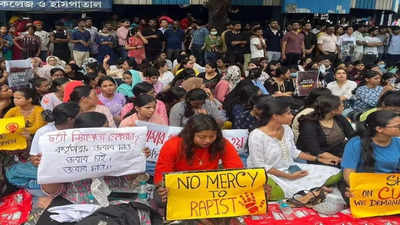
The protests began earlier this week, with healthcare workers voicing their concerns about inadequate compensation and escalating workloads. The walkouts have led to a sharp decline in the availability of outpatient care, with many clinics and hospitals forced to postpone or cancel scheduled appointments.
The doctors' strike has been prompted by ongoing negotiations between medical associations and government health departments, which have reportedly stalled. The primary grievances include demands for improved salaries, better job security, and enhanced working conditions. Medical professionals argue that their current compensation does not reflect the demands and responsibilities of their roles, contributing to a high level of job dissatisfaction.
The impact on patient care has been immediate and substantial. Numerous individuals requiring regular follow-up appointments or routine check-ups have been unable to access the care they need. This disruption is particularly troubling for patients with chronic conditions who rely on consistent outpatient services to manage their health.
Healthcare administrators are working to mitigate the effects of the strike, attempting to reroute non-emergency cases to emergency rooms and other available facilities. However, the limited resources and increased patient load are straining the emergency departments, leading to longer wait times and reduced quality of care.
In response to the protests, government officials have expressed their commitment to addressing the concerns raised by the doctors. Discussions are reportedly underway to negotiate terms that could lead to a resolution of the strike. The focus of these negotiations is on improving compensation packages and ensuring that working conditions are conducive to maintaining a high standard of patient care.
The strike has also garnered support from various professional organizations and advocacy groups, which have highlighted the broader implications of the protest. They argue that addressing the issues raised by the medical professionals is essential not only for improving the quality of care but also for ensuring the sustainability of the healthcare system.
As the situation continues to unfold, both sides remain engaged in discussions, with hopes of reaching an agreement that will restore normalcy to outpatient services. The resolution of the strike will be critical in determining the future stability of healthcare services and the wellbeing of patients across the nation.
For now, patients are advised to contact their healthcare providers for updates on their appointments and to seek alternative care options if necessary. The ongoing protest underscores the critical need for systemic improvements in the healthcare sector to support the professionals who are at the forefront of patient care.
